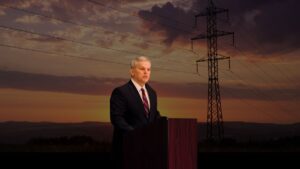Source: The News & Observer
North Carolina’s extremist Republicans are continuing their assault on Gov. Roy Cooper’s appointment authority in an effort to install their own appointees – and a bipartisan group of five of our state’s former governors is speaking out in opposition, The News & Observer reported.
Former Govs. Jim Hunt (D), Jim Martin (R), Mike Easley (D), Bev Perdue (D) and Pat McCrory (R) sent a letter to Republican leadership expressing their concern.
“We fear that it would inflict real chaos and harm upon the people of our state,” they wrote. “The Governor is charged under the state Constitution with carrying out the laws you pass and it is much more difficult to do this effectively with boards that have less than a clear majority of appointees from the Governor.”
Despite the objections from the group of ex-governors, the North Carolina Senate advanced a bill on April 19 that strips the governor of his power to appoint community college leaders and also strengthens the power of the community college system president.
Senate Bill 692 would give the North Carolina General Assembly significantly more control over the state’s 58-campus community college system.
If SB 692 eventually becomes law, it would grant the legislature:
- The power to make appointments to the State Board of Community Colleges that are now made by the governor.
- The power to appoint members to each campus board that is now made by the governor and local school boards.
- The final decision on naming the system’s president, which is now made by the state board.
The bill passed in the Senate Rules Committee along party lines and drew a strong rebuke from Democrats, according to The News & Observer.
“I’m going to try to call it for what it is, which is a power grab by the legislature down into local governments of local community colleges, most of which I think even by your own admission, are working just fine,” said Sen. Julie Mayfield (D-Buncombe).
Republicans pushed back against Democrats’ accusations of this move simply being a power grab. Unsurprisingly, when Democrats repeatedly pushed the two sponsors of the bill to provide specific examples of community colleges where the current governance structure was not working, Sens. Tom McInnis and Amy Galey were unwilling to do so, claiming it wouldn’t be fair to talk about.
“I don’t want to talk about people who aren’t here to defend themselves, I do think that’s unfair to them,” Galey said.
The governors also called out two other bills in their letter.
One bill, Senate Bill 512, takes appointments to statewide boards and commissions held by the governor and moves them to the General Assembly.
The nine boards or commissions impacted by SB 512 are:
- N.C. Utilities Commission
- Economic Investment Committee
- Environmental Management Commission
- Commission for Public Health
- Board of Transportation
- Coastal Resources Commission
- Wildlife Resources Commission
- N.C. Railroad Board of Directors
- The UNC Health Care Board of Directors
The other bill is House Bill 17, which would make the State Board of Education an elected body instead of one made up mostly of the governor’s appointees.




